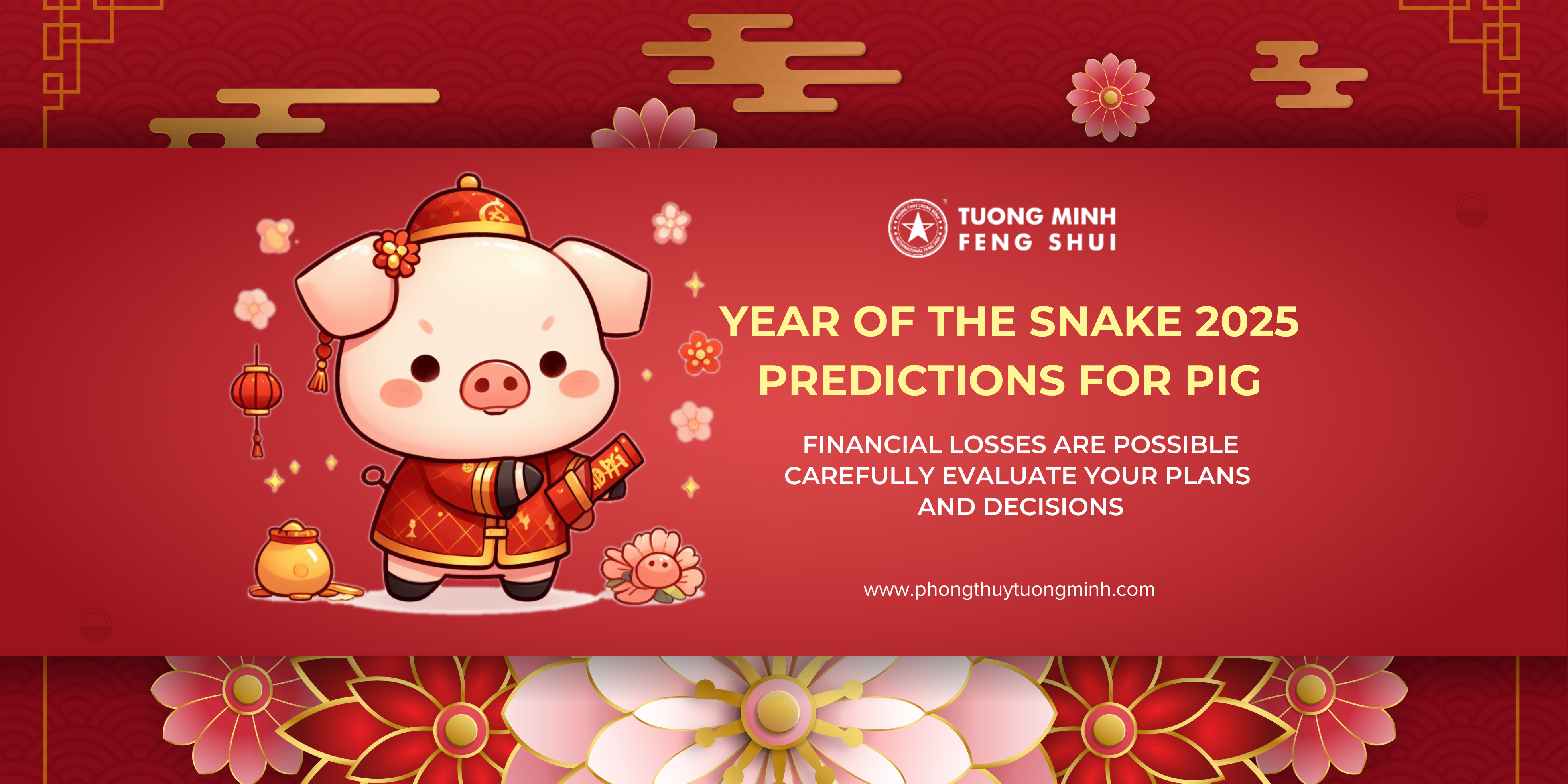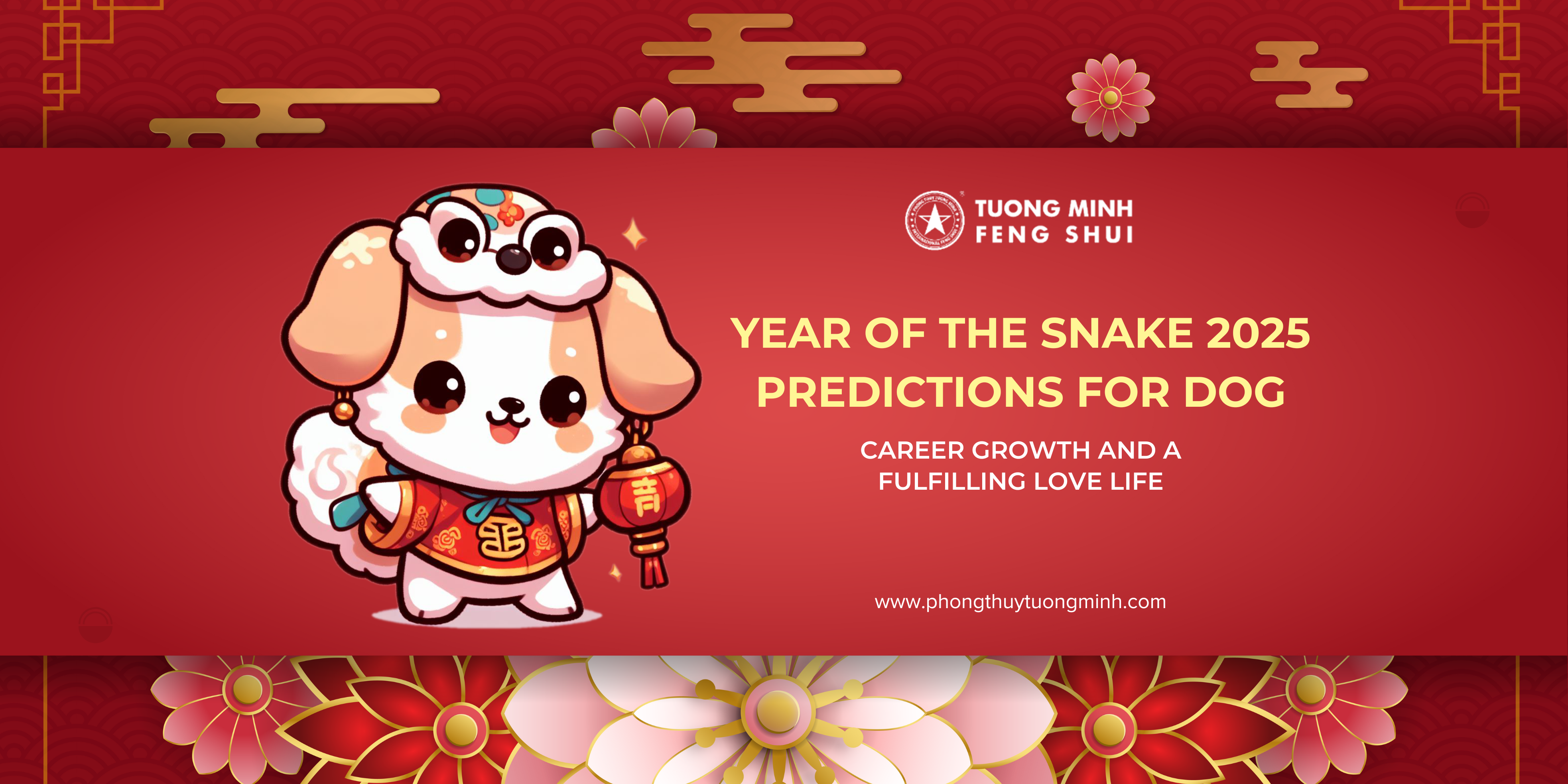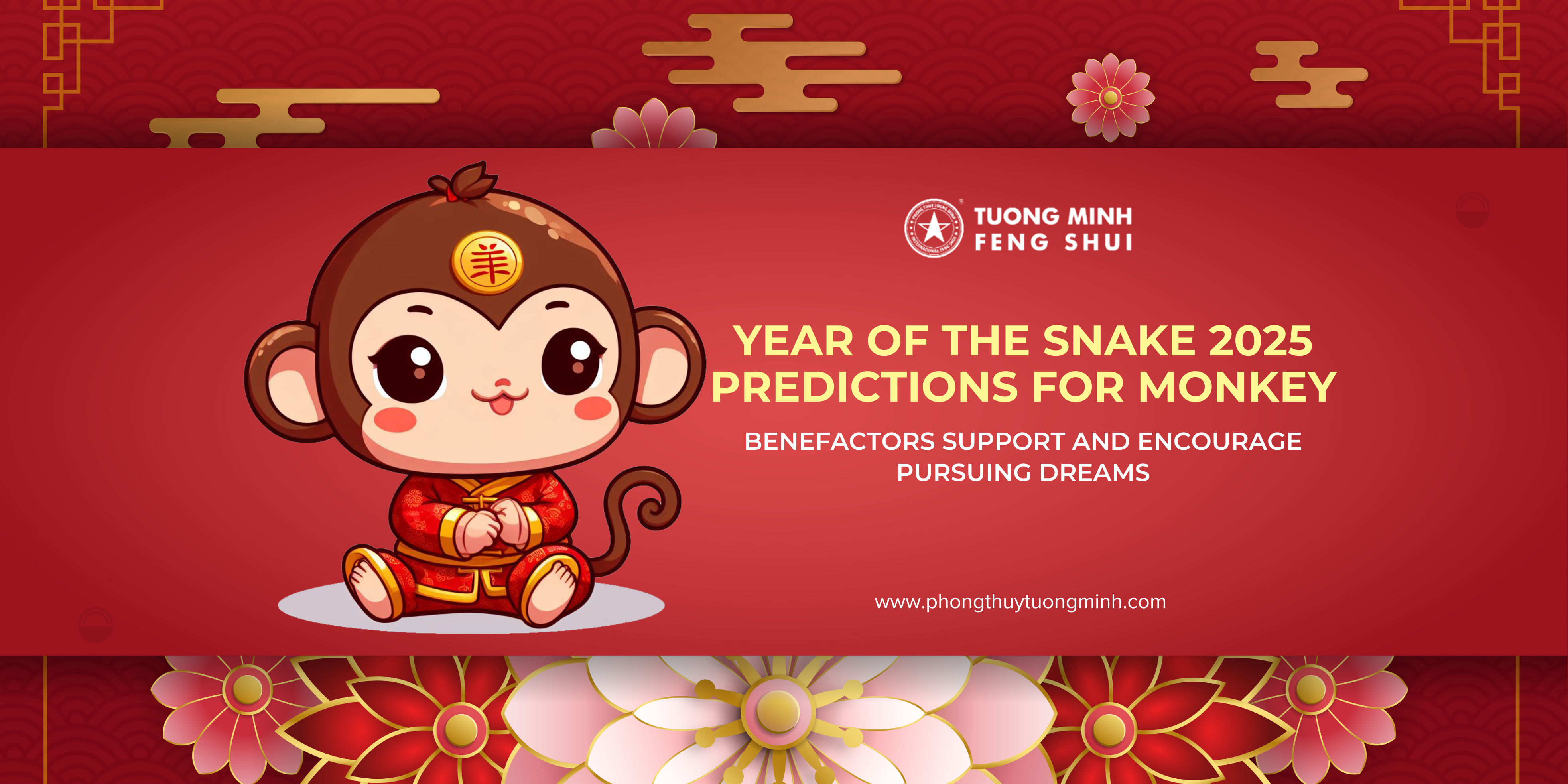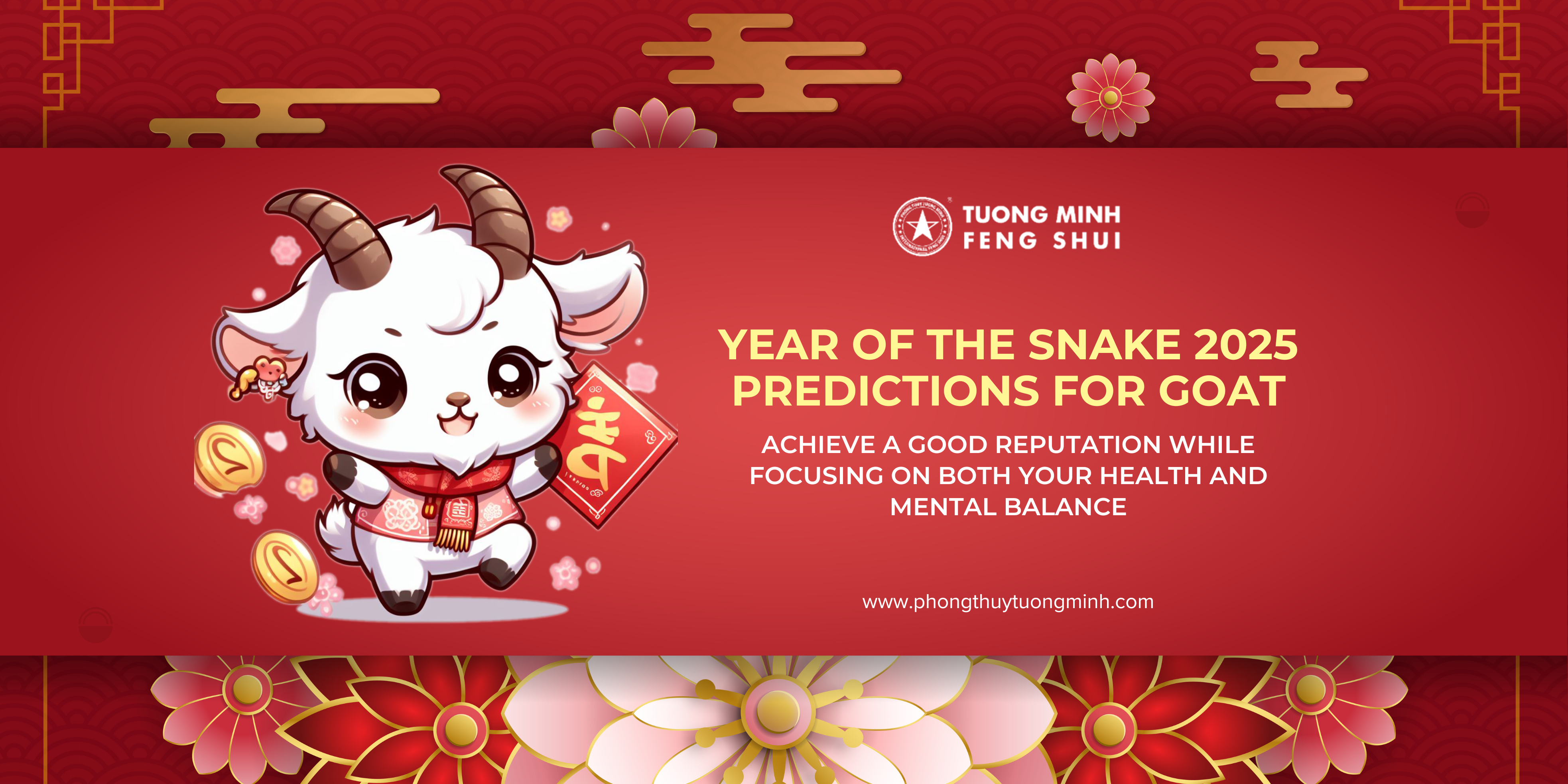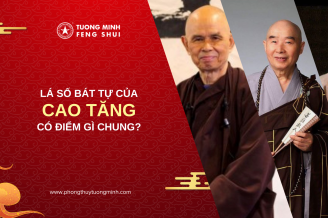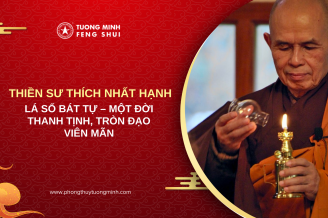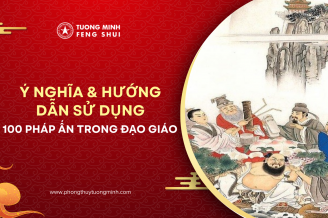In Chinese history, the story of Guiguzi and his two famous disciples, Pang Juan and Sun Bin, symbolizes exceptional talent and a profound understanding of fate. It is said that, through his ability to foresee destiny by observing flowers, Guiguzi taught them the art of war and foresaw the opposing fates of the two men.
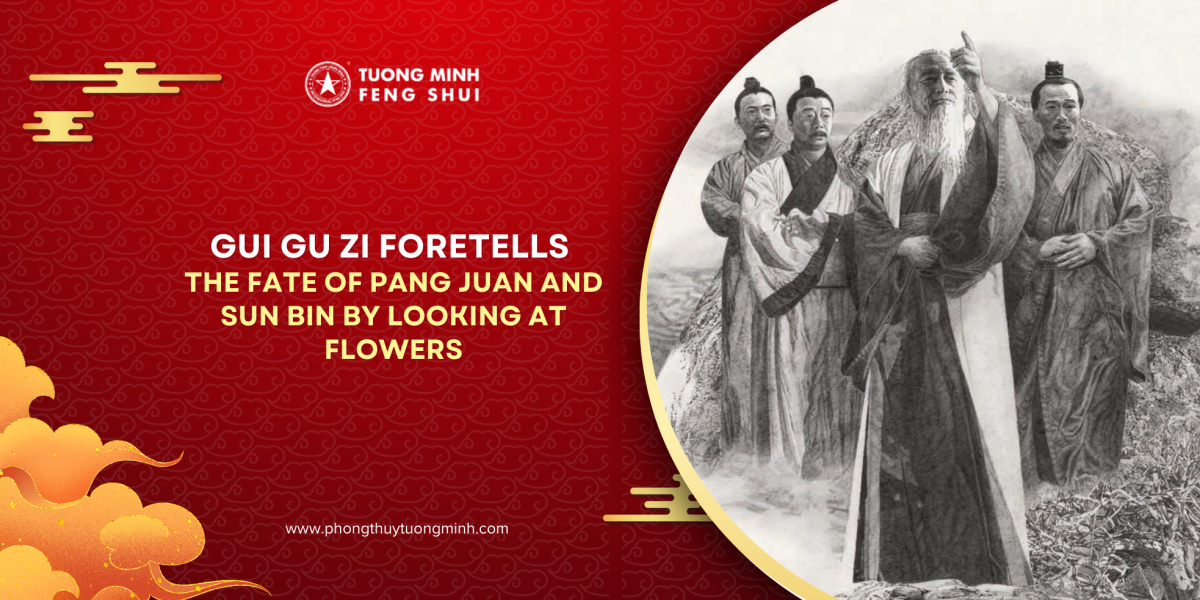
Gui Gu Zi – The Enlightened Master
Guiguzi is a figure from Chinese history's Spring and Autumn Periods.
He was also highly skilled in reading people and making astoundingly accurate predictions. He lived in a mountain in Yang Cheng, an area so densely forested and shadowy that it was called "Ghost Valley." Because of this, he became known as "Master of Ghost Valley" (Gui Gu Xian Sheng).
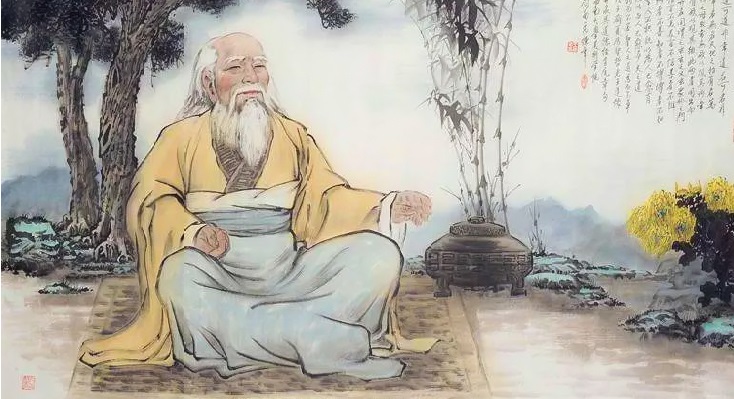
Guiguzi would assess the aptitude of those who sought to learn from him and teach them accordingly. Some he trained to serve the Seven Warring States, while others he taught them the art of immortality.
Many sought his wisdom, and he neither refused those who came nor pursued those who left.
Pang Juan and Sun Bin – The Two Outstanding Disciples of Guiguzi
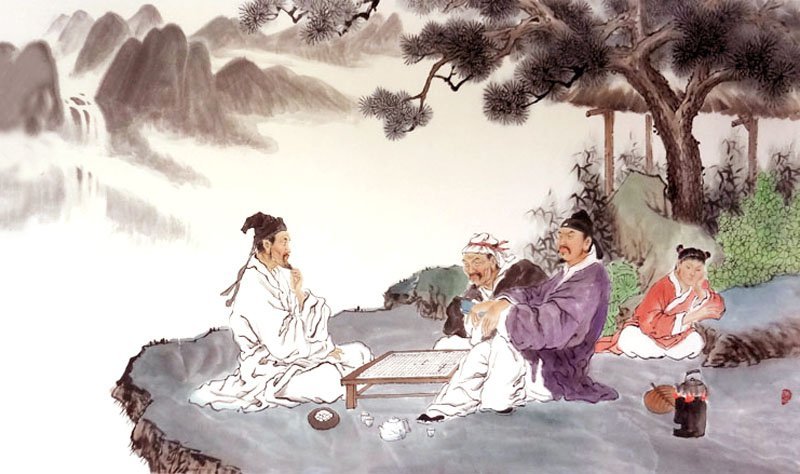
Among Guiguzi’s most brilliant disciples were Pang Juan and Sun Bin. Admiring the master's reputation, they sought him out, became sworn brothers, and studied military strategy under his guidance.
Three years passed, and both had made significant progress in the art of war. However, Pang Juan grew impatient, believing himself exceptionally skilled and eager to explore the vast world beyond the valley.
One day, while fetching water from the mountain, Pang Juan overheard travelers discussing how the state of Wei was offering rewards to recruit talented generals. His ambition was ignited, but he hesitated, fearing that Guiguzi would not let him leave.
Seeing Pang Juan’s expression, Guiguzi smiled and said, "Your time has come. Why not leave the mountain to pursue wealth and glory?"
Hearing this, Pang Juan was delighted but still uncertain. He knelt and asked, "Master, I wish to go, but will my journey be smooth?"
Guiguzi replied, "Pick a wildflower, and I will divine your fate for you."
Guiguzi Foresees Pang Juan’s Fate Through a Flower
It was the sixth lunar month, and the weather was scorching. Most flowers had already withered. Pang Juan searched for half a day but only found a single herbaceous plant. He uprooted it but threw it away upon realizing it wasn’t beautiful.
After another round of searching without finding anything else, he reluctantly picked up the same flower and hid it in his sleeve.
Returning to Guiguzi, he said, "Master, there are no flowers in the mountains."
Guiguzi asked, "If so, what is on your sleeve?"
Knowing he couldn’t hide it, Pang Juan took out the flower. However, it had already wilted because it had been exposed to the sun for too long after being uprooted.
Guiguzi then asked, "Do you know the name of this flower? It is called 'Nan Wood Fragrance' (Mu Xiang Nan), and when it blooms, it has twelve petals. This represents the twelve years of your fortune. However, since you picked it in Ghost Valley, and it has wilted under the sun, the character for (委) combined with 'ghost' (鬼) forms the word 'Wei' (魏). This means your success will be in the state of Wei."
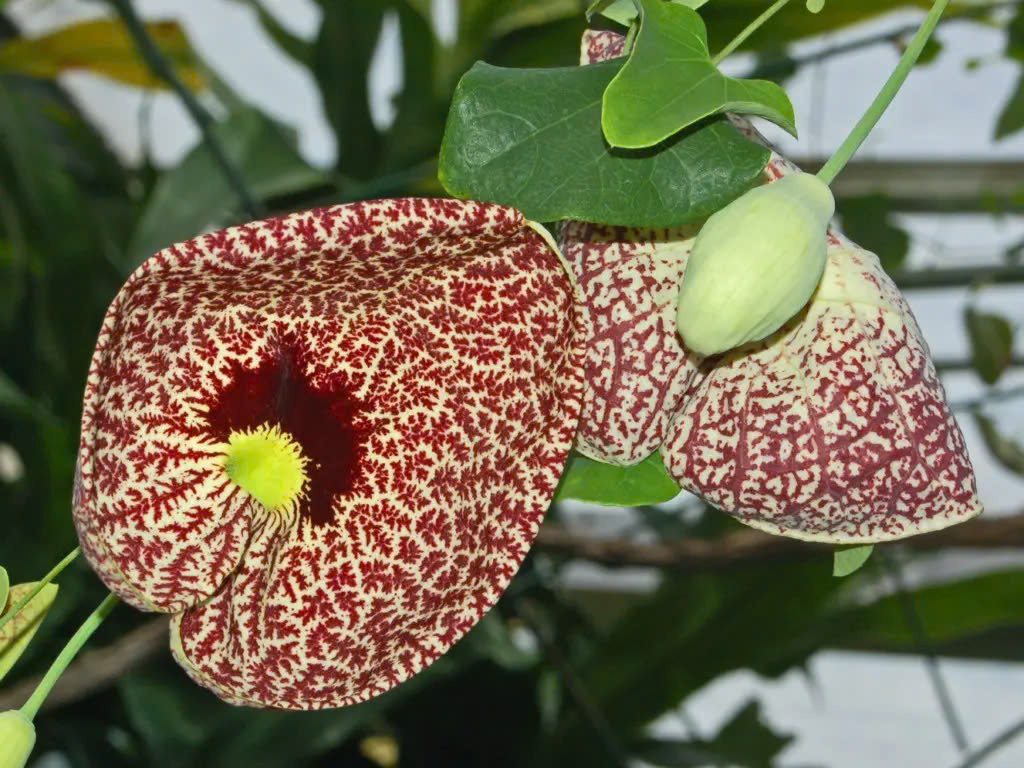
Hearing this, Pang Juan was amazed. However, Guiguzi continued, "But you must not deceive others. One day, you will be deceived in return and meet a tragic end. Remember these eight words: 'Meet the goat and prosper, meet the horse and perish.'"
Before leaving, Pang Juan bowed deeply and said, "Master, how could I forget your teachings?"
A Farewell Between Brothers
Sun Bin escorted Pang Juan down the mountain. Pang Juan said, "We are sworn brothers. If I am promoted, I will surely recommend you so we can achieve glory together."
Sun Bin asked, "Do you truly mean this?"
Pang Juan replied, "If I deceive you, may I die under ten thousand arrows."
Sun Bin thanked him, and the two parted in tears.
After leaving the mountain, Pang Juan sought out Chancellor Wang Ta of Wei and impressed him with his strategic knowledge. Wang Ta, intrigued, recommended Pang Juan to King Hui of Wei.
When Pang Juan entered the court, the royal chef brought in a steamed goat meat dish. Seeing this, Pang Juan rejoiced, remembering Guiguzi’s words, "Meet the goat and prosper."
Impressed by Pang Juan’s appearance and intellect, King Hui immediately promoted him. Pang Juan soon gained power in Wei and led its army in wars against other states.
Sun Bin’s Fate – The Forgotten Promise
One day, the philosopher Mozi traveled past Ghost Valley and visited his old friend, Guiguzi. He met Sun Bin and asked why he had not left to pursue success there.
Sun Bin explained, "I am waiting for Pang Juan to fulfill his promise and recommend me."
Mozi, suspecting that Pang Juan had no intention of helping Sun Bin, left for Wei to investigate.
In Wei, he found Pang Juan arrogant and intoxicated by his power. Realizing that Pang Juan would never recommend Sun Bin, Mozi sought an audience with King Hui.
Having long heard of Mozi’s wisdom, the king invited him to the palace to discuss military strategy. Mozi gave a brief but insightful lecture, which greatly impressed the king.
At this moment, Mozi recommended Sun Bin, prompting the king to ask, "Sun Bin and Pang Juan were both students of Guiguzi. Who is more talented?"
Mozi replied, "Although they studied together, only Sun Bin has mastered the secret teachings. In all of China, no one can match him, let alone Pang Juan."
King Hui of Wei sent Pang Juan to inquire, saying, “Sun Bin possesses the secret teachings of Jun Wu, making him invincible. Why not summon him to assist us?”
Pang Juan responded with sound reasoning, “Because Sun Bin is from the state of Qi, it wouldn’t be appropriate.”
King Hui replied, “A man should die for a true friend. Must we only use people from our own state?”
Seeing that King Hui had already made up his mind, Pang Juan had no choice but to agree, saying he would write a letter to Sun Bin. However, deep inside, he was scheming. He controlled all military power in Wei, and if Sun Bin came, he would surely steal the king’s favor. Yet, since this was a direct royal order, he couldn’t refuse. He decided to wait until Sun Bin arrived before figuring out a way to prevent him from being valued.
Pang Juan then wrote a letter for King Hui, who prepared a grand carriage drawn by four fine horses, adorned with gold and jade. He sent an envoy carrying Pang Juan’s letter to Ghost Valley to invite Sun Bin down the mountain.
Sun Bin had long heard that his junior, Pang Juan, was highly favored by the King of Wei. He deeply admired this and was overjoyed when he received Pang Juan’s letter inviting him to assist the Wei king.
Excited, Sun Bin brought the letter to his master, Ghost Valley Master, for advice. The master, knowing that Pang Juan had risen to prominence, noticed that his letter lacked even a single word of respect for their teacher. This was a clear sign of an ungrateful and cold-hearted person—not someone worth trusting. Ghost Valley Master understood Pang Juan’s arrogant and jealous nature; if Sun Bin went to Wei, he would undoubtedly face trouble.
Though the master wished to stop him, he saw that the King of Wei had sent a formal envoy and that Sun Bin was eager to go. He didn’t want to directly forbid him, so he asked Sun Bin to pick a flower to use for divination and determine his fate.
At the time, it was the ninth lunar month, and the autumn atmosphere was everywhere. On one of the tables in Ghost Valley Master’s residence sat a vase holding a single chrysanthemum. Sun Bin, upon being asked to find a flower, spotted the golden chrysanthemum and picked it, thinking he could return it to the vase after the divination.
Ghost Valley Master examined the flower and said, “This flower has been plucked, making it incomplete. However, chrysanthemums endure frost and cold without withering. Though damaged, it is not an ill omen. The good news is that it was nurtured in a vase, cherished and valued.”
He implied, “In the future, even when you suffer harm, there will be people who recognize your worth and support you. The metal vase represents ritual vessels, symbolizing that you will eventually escape hardship and gain great renown. But if this flower is picked again, things may not go as smoothly. You still wish to return it to the vase, which suggests that your true success will ultimately lie in your homeland—Qi.”
At that moment, Ghost Valley Master already foresaw that Sun Bin would suffer a terrible punishment—the removal of his kneecaps. However, such secrets of fate could not be revealed.
Sure enough, Sun Bin’s destiny unfolded exactly as the master had predicted.
Before Sun Bin left, Ghost Valley Master handed him a silk pouch, advising him to only open it in the most desperate situation. Sun Bin bid farewell to his teacher and followed the Wei envoy down the mountain.
Upon arriving in Wei, Sun Bin was betrayed by Pang Juan. He had his kneecaps removed, his face tattooed as a criminal, yet Pang Juan, still wanting to obtain the Art of War from him, did not kill him.
At first, Sun Bin couldn’t believe Pang Juan had deceived him. He even felt grateful, thinking Pang Juan had spared him from execution by King Hui. Crippled, he relied entirely on Pang Juan for his daily meals, which filled him with guilt and indebtedness.
One day, a servant assigned to care for him took pity on him, knowing he had been wrongly accused. The servant secretly warned him that once he finished writing the military strategies, Pang Juan would have him killed.
Shocked, Sun Bin desperately sought a way to escape. Suddenly, he remembered his master’s silk pouch and decided to open it. Inside was a golden slip of paper with three words: “Feign Madness.”
Sun Bin then began pretending to be insane—eating filth, drinking urine, and sleeping in a pigsty. Seeing this, Pang Juan finally let him roam freely but still had spies report on his whereabouts daily. Though Pang Juan remained suspicious, word had spread that his esteemed guest, Sun Bin, had lost his mind.
Around this time, the philosopher Mozi happened to visit Qi. One of his disciples, Qin Huo, had just returned from Wei. When Mozi inquired about Sun Bin’s situation and learned what had happened, he sighed regretfully, realizing that his recommendation had actually harmed Sun Bin.
Mozi then informed Prince Tian Ji of Qi about Sun Bin’s predicament. Tian Ji, in turn, reported it to King Wei of Qi, who decided to rescue Sun Bin and make use of his talents.
Following Tian Ji’s strategy, King Wei of Qi sent an envoy to Wei under the pretense of offering tribute, including rare teas. Qin Huo, disguised as an attendant, accompanied the mission. With his help, Sun Bin successfully escaped from Wei and returned to Qi.

Sun Bin and Pang Juan: A Brotherhood Turned Rivalry
Sun Bin and Pang Juan found themselves on opposing sides as the states of Qi and Wei went to war. Their personal grudge fueled a series of deadly battles that spanned many years.
Initially, Sun Bin and Tian Ji were highly valued in the state of Qi. However, a petty and jealous court official, bribed by Pang Juan, sought to harm them. It wasn’t until King Wei of Qi passed away and King Xuan ascended the throne that they were recalled and reinstated.
During his time in Qi, Sun Bin had several opportunities to match wits with Pang Juan. Meanwhile, Pang Juan, wielding supreme power in Wei, became increasingly arrogant, frequently leading military campaigns against neighboring states.
In 353 BCE, Pang Juan led a large army to attack Zhao. Desperate, the King of Zhao sent envoys to Qi for aid. In response, the Qi army marched to Zhao’s rescue, following Sun Bin’s strategic advice. Instead of engaging Pang Juan head-on, Sun Bin advised General Tian Ji to lead the Qi forces straight toward Daliang, the capital of Wei, threatening to besiege it.
Upon hearing this, Pang Juan hastily withdrew his troops to protect his homeland. On the way back, however, his forces were ambushed and severely defeated by Tian Ji at Guiling. Pang Juan was even captured alive but was later released by Sun Bin out of respect for their shared past as fellow disciples.
Determined to restore his reputation after the humiliating defeat at Guiling, Pang Juan led another campaign in 341 BCE, this time against Han. As the two armies clashed, Sun Bin devised a brilliant psychological strategy. Each day, he ordered the number of cooking stoves in the Qi camp to be reduced—from 100,000 to 50,000, then down to fewer than 30,000.
Pang Juan’s scouts observed the dwindling number of stoves and concluded that Qi’s soldiers were deserting in fear. Convinced that the Qi army was collapsing, Pang Juan left his main force behind and led a rapid pursuit with his elite troops, marching day and night.
Sun Bin had anticipated this. He calculated that Pang Juan’s army would arrive at Maling Valley by dusk, where the terrain was narrow and surrounded by steep hills—an ideal spot for an ambush.
In preparation, Sun Bin ordered his men to cut down the surrounding trees to obstruct the path, leaving only one large tree standing. Its bark was stripped away, revealing a smooth white surface. On it, Sun Bin wrote six bold characters: "Pang Juan will die beneath this tree." Below, he added four more: "Strategist Sun commands." He then instructed his hidden troops to unleash their arrows the moment they saw a fire light up beneath the tree.
As dusk fell, Pang Juan’s forces reached Maling. With no moonlight to guide them, his vanguard reported that the road ahead was blocked by fallen trees. Assuming it was a desperate move by the retreating Qi forces, Pang Juan ordered his men to clear the path.
Just as he was about to give the command, he noticed the white markings on the large tree. Curious, he ordered his soldiers to bring torches closer. As the flames illuminated the writing, Pang Juan read the ominous words. Realizing the trap, he exclaimed in shock, "I’ve fallen into Sun Bin’s trap!"
Before he could react, the night erupted with the deafening sounds of Qi soldiers shouting. From both sides of the valley, tens of thousands of arrows rained down like a storm. Caught in the ambush, Wei’s troops panicked, trampling over each other in chaos. Casualties were immense, and Pang Juan met his end beneath the very tree that bore his name.
This legendary battle cemented Sun Bin’s reputation as a master strategist and marked the ultimate downfall of Pang Juan.
Exhausted and cornered, Pang Juan refused to suffer the humiliation of falling into Sun Bin’s hands once again. Instead, he drew his sword and took his own life. Before dying, he looked up to the sky and lamented, “So in the end, I’ve made that bastard famous.”
Later, Sun Bin’s strategy of reducing the number of cooking stoves and his ambush at Maling became legendary in military history, serving as a textbook example of using bait to lure the enemy into a trap.
Pang Juan met his end at Maling Dao, just as Guiguzi had forewarned: “If you encounter a horse (Mǎ), you will die.” His fate also fulfilled his own oath: “If I ever speak falsehoods, I will perish under ten thousand arrows.”
One intriguing detail is that Pang Juan didn’t kill Sun Bin immediately—he wanted Sun Bin to transcribe The Art of War for him. But if both had studied under the same master, Guiguzi, why did they turn out so differently? Was it favoritism on the master’s part?
Let’s go back to when Pang Juan left the mountain—Sun Bin was the one who saw him off. The two disciples wiped their tears as they parted ways, their faces still damp with sorrow.
Guiguzi, observing this, asked,
“Do you mourn Pang Juan’s departure?”
Sun Bin replied, “How could I not grieve for a fellow student?”
The master then asked, “Do you think Pang Juan has what it takes to become a great general?”
Sun Bin responded, “After all these years of your teaching, how could he not?”
Guiguzi shook his head and said, “Not quite. Not quite!”
Sun Bin was taken aback and asked why, but Guiguzi did not answer.
The next day, Guiguzi gathered his disciples and said,
“I despise the sound of rats squeaking at night. You will take turns staying up to chase them away for me.”
On the night it was Sun Bin’s turn to stand watch, Master Guiguzi took out a manuscript from beneath his pillow—The Thirteen Chapters of Military Strategy by Jun Wu, annotated by Guiguzi himself.
He said, “All the secrets of military strategy are contained within this text. I have never easily passed it down to anyone. But now, seeing your kindness and compassion, I have decided to share it with you.”
Sun Bin, deeply moved, revealed his own past—he had lost his parents, his homeland had fallen into turmoil, and his family had been scattered. He knew that his ancestors once possessed this book, but no one had ever passed it down to him. He then asked, “If you have written annotations, why not teach Pang Juan as well? Why only me?”
Guiguzi replied, “One who possesses this book and wields it wisely will bring prosperity to the world. But in the wrong hands, it will bring disaster. Pang Juan lacks virtue—how could I entrust him with such knowledge so easily?”
And so, Sun Bin took the book to his room and spent the night studying it. Three days later, Guiguzi retrieved the manuscript and quizzed him, flipping through each chapter. Sun Bin responded fluently, reciting every word without missing a single detail.
Delighted, Guiguzi said, “Your dedication is as if your ancestors had never perished.”
There is a saying among practitioners of the ancient arts: A master seeks a disciple, not the other way around. This means that true masters carefully choose their students, setting the highest standards. If a student does not meet both the talent and moral character required, they will never be entrusted with the true teachings.
Perhaps this is why so much ancient wisdom has been lost over time. Many great masters, unable to find a worthy successor, would rather take their knowledge to the grave than pass it on to someone unworthy.


